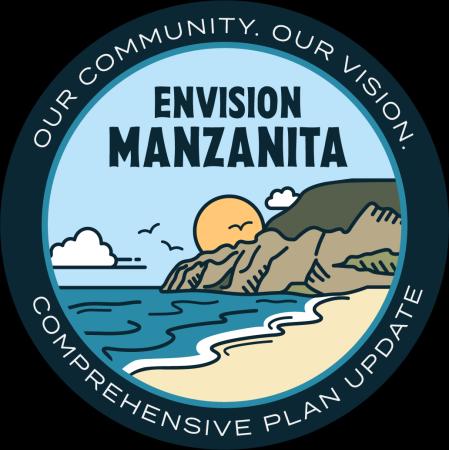to the BBQ readership,
Americans who voted for Trump are soon going to learn how his policies are going to affect their lives negatively.
This is Heather Cox Richardson’s “Letters from an American” posted tonight 11/14/24.
At the end of her letter, I have left all the links to her references as well.
om peace namaste
lucy brook
nehalem resident
U.S. citizen
November 14, 2024
HEATHER COX RICHARDSON
Two snapshots today illustrate the difference between the economic—and therefore the societal—visions of the Biden-Harris administration and of the incoming Trump administration.
The Biden-Harris administration today released numbers revealing that over the past four years, their policies have kick-started a boom in the creation of small businesses across the country. Since the administration took office, entrepreneurs have filed more than 20 million applications for new businesses, the most of any presidential term in history. This averages to more than 440,000 applications a month, a rate more than 90% faster than averages before the pandemic. Black business ownership has doubled, and Hispanic business ownership is up by 40% since before the pandemic.
The administration encouraged that growth with targeted loans, tax credits, federal contracts, and support services. Small businesses are major job creators and employ about 47% of all private sector employees.
President Joe Biden rejected the “neoliberalism” of the previous 40 years that had moved about $50 trillion dollars from the bottom 90% of Americans to the top 1%. Those embracing that theory maintain that the government should let markets operate without regulation, concentrating wealth among a few people who will invest it more efficiently than they can if the government intervenes with regulations or taxes that hamper the ability of investors to amass wealth.
Biden and Harris returned the U.S. to the model that both parties had embraced until 1981: the idea that the government should regulate business, provide a basic social safety net, promote infrastructure, and protect civil rights. That system had reduced extremes of wealth in the U.S. after the Great Depression and given most Americans a path to prosperity.
Biden’s policies worked, enabling the U.S. to recover from the pandemic more quickly than any other country with a modern economy, sending unemployment to historic lows, and raising wages faster than inflation for the bottom 80% of Americans.
It has also had social effects, most notably today with the announcement from the Centers for Disease Control and Prevention that the U.S. is seeing a historic drop in deaths from the street drug fentanyl. From June 2023 to June 2024, deaths dropped by roughly 14.5%, translating into more than 16,000 lives saved. Experts say the drop is due to better addiction healthcare, the widespread availability of the opioid reversal drug naloxone, and lower potency of street fentanyl.
If the record of the extraordinary growth of small businesses in the past four years is one snapshot, the other is a social media post from yesterday, in which former pharmaceutical executive Vivek Ramaswamy noted that the government spends $516 billion a year on “programs which Congress has allowed to expire.” “We can & should save hundreds of billions each year by defunding government programs that Congress no longer authorizes,” he wrote.
Bobby Kogan, who worked in President Joe Biden’s Office of Management and Budget and on the Senate Budget Committee, explained that Congress often authorizes spending as “temporary” in order “to encourage Congress to revisit it to update various parts of the bill, such as eligibility, benefits, etc.” But Congress can still fund the programs in appropriations bills.
Kogan noted that the largest program currently operating under expired authorization is veterans’ medical care.
Trump and his advisors embrace the neo-liberalism Biden rejected. Rather than invest in the economy to create opportunities for middle-class Americans and those just starting out, they want to slash the existing government to free up more capital for investors.
Trump has tapped the world’s richest man, Elon Musk, who invested at least $132 million in cash in Trump’s campaign as well as the in-kind gift of the support of X, and former pharmaceutical executive Vivek Ramaswamy to run a “Department of Government Efficiency,” or DOGE, named for Musk’s favorite cryptocurrency.
According to the Washington Post’s Jeff Stein, Elizabeth Dwoskin, Cat Zakrzewski, and Jacob Bogage, people around Musk say the group is intended to “apply slash-and-burn business ideologies to the U.S. government.” Musk has vowed to slash “at least” $2 trillion from the federal budget and has warned it will create “hardship.”
That the people embracing this plan see a world in which a few elites run things showed in today’s social media post by the “DOGE.” The post called for “super high-IQ small-government revolutionaries willing to work 80+ hours per week on unglamorous cost-cutting. If that’s you, DM this account…. Elon & Vivek will review the top 1% of applicants.”
Such cuts would be enormously unpopular, and in the Washington Post yesterday, Stein, Dwoskin, Zakrzewski, and Bogage reported that Trump’s aides are exploring ways to enact dramatic cuts to the government without congressional approval. Key among those is simply refusing to release the money Congress appropriates for programs Musk and Trump want to cut. This is known as “impoundment,” and Congress made it illegal in 1974 after President Richard Nixon tried to shape the government to his wishes by refusing to fund congressional programs he opposed.
Trump tried to do this quietly in 2019 by refusing to release the money Congress had appropriated for Ukraine to fund its fight against Russian incursions until Ukraine president Volodymyr Zelensky smeared Biden. When the threat came to light, the House of Representatives impeached Trump. Although the Senate ultimately acquitted Trump, according to Senator Ted Cruz (R-TX) all the Republican senators agreed he had done as the House charged.
Now Trump’s team apparently hopes that a pliant Supreme Court will declare the 1974 Impoundment Control Act unconstitutional, permitting Trump—or Vice President J.D. Vance, should Trump not be able to fulfill his term—to shape the government without consulting Congress.
Because of the 2024 presidential election, Trump will soon be able to return the country to the neoliberal vision of the 40 years before Biden, supercharging it with the help of unelected billionaire Elon Musk, who recently claimed the title of being the “George Soros of the right,” a reference to the liberal philanthropist who has been the bogeyman of right-wing pundits.
But it’s not at all clear that Americans actually want that supercharged neoliberalism. As vote counts are continuing, it has become clear that Trump’s victory was slim indeed. New numbers from Nate Silver suggest he will not clear 50% of voters.
At the same time, a new study out today from Data for Progress showed that people who paid “a great deal” of attention to political news voted for Vice President Kamala Harris +6, while those who paid “none at all” went +19 for Trump.
Many of those voters got their information from social media or right-wing websites, but one of those today underwent a historic change. The satirical news outlet The Onion bought right-wing radio host and conspiracy theorist Alex Jones’s InfoWars at auction. Jones’s property was up for sale because juries found him guilty of defamation and awarded his victims about $1.5 billion in damages. After the 2012 shooting at the Sandy Hook Elementary School in Connecticut that killed 26 students and teachers, Jones insisted the event was a hoax designed to provide an excuse for gun safety regulations. He and his supporters harassed the victims’ families for years.
Jones appeared to be trying to keep control of InfoWars by having a company associated with him buy it up under the terms of the bankruptcy and restore it to him. But Sandy Hook families worked with The Onion to keep it from returning to Jones’s hands. Jones is screaming that the sale that took it away from him was a conspiracy. The company associated with him, First United American Companies, is already protesting the sale in court.
Jones rose to prominence in 1993, when he dropped out of community college to start a talk radio show that warned the government was making war on Americans. His shtick echoed the anti-communist grifters of the post–World War II years that promised small donors that their contributions could stop the creeping communism in the United States. Jones became popular enough that he went on to found InfoWars, which made him rich from the sale of nutritional supplements. The theme of InfoWars was that “There’s a war on for your mind!” and that only people like him could deliver the truth.
But his lies cost him a billion dollars. And now, noting that “InfoWars has shown an unswerving commitment to manufacturing anger and radicalizing the most vulnerable members of society,” The Onion has bought his website, which it plans to relaunch in January as a parody of Jones and a site that promotes gun safety legislation.
The chief executive officer of The Onion, Ben Collins, told Kim Bellware of the Washington Post: “It’s not just Jones, it’s the people on Instagram trying to get you to drink raw milk; it’s the multilevel marketing people trying to get you to join a scam…. Those people have outsize impact in our completely bifurcated and balkanized media environment.”
fyi: “bifurcate” definition: divide into two branches or forks
fyi: “balkanize” definition: to divide (a region or body) into smaller mutually HOSTILE states or groups. Note the word I capitalized.
—
Notes:
www.whitehouse.gov/briefing-room/statements-releases/2024/11/14/statement-from-president-joe-biden-on-a-record-20-million-new-business-applications/
www.whitehouse.gov/briefing-room/statements-releases/2024/11/14/fact-sheet-a-record-20-million-new-business-applications/
www.whitehouse.gov/briefing-room/statements-releases/2024/11/14/statement-from-vice-president-kamala-harris-on-a-record-20-million-new-business-applications/
advocacy.sba.gov/2023/03/07/frequently-asked-questions-about-small-business-2023/
apnews.com/article/onion-buys-infowars-alex-jones-6496f198d141c991087dcd937b3588e9
www.thedailybeast.com/george-soros-of-the-right-thatll-be-me-says-elon-musk/
www.nbcnews.com/business/economy/economy-if-trump-wins-second-term-could-mean-hardship-for-americans-rcna177807
democrats-budget.house.gov/resources/reports/impoundment-control-act-1974-what-it-why-does-it-matter
www.washingtonpost.com/business/2024/11/13/elon-musk-government-efficiency-congress-budget-law/
www.dataforprogress.org/insights/2024/11/14/what-political-news-engagement-tells-us-about-donald-trumps-victory
x.com/NateSilver538/status/1856967496462446603
www.cdc.gov/nchs/nvss/vsrr/drug-overdose-data.htm
www.npr.org/2024/11/14/nx-s1-5191743/overdose-deaths-drop-fentanyl-opioid-crisis
www.washingtonpost.com/nation/2024/11/14/infowars-auction-alex-jones-sandy-hook-the-onion/
theonion.com/heres-why-i-decided-to-buy-infowars/
Joe Conason, The Longest Con: How Grifters, Swindlers, and Frauds Hijacked American Conservatism (St. Martin’s Press, 2024).
www.bloomberg.com/news/videos/2024-10-28/elon-musk-we-can-cut-2-trillion-from-us-budget-video
Igor Bobic, “’We Are F**CKED’: New Book Reveals How GOP Senators Bailed Out Trump During 1st Impeachment Trial, HuffPost, October 7, 2022 at www.yahoo.com/news/f-ked-book-reveals-gop-110011623.html.
Rachael Bade and Karoun Demirjian, Unchecked: The Untold Story Behind Congress’s Botched Impeachments of Donald Trump (New York: William Morrow, 2022).
X:
doge/status/1857076831104434289
RonFilipkowski/status/1856678837976805423
NateSilver538/status/1856967496462446603
Bluesky:
did:plc:drfb2pdjlnsqkfgsoellcahm/post/3lauib3txyk2l
andrewtorrez.bsky.social/post/3lawc2tww5c2y










